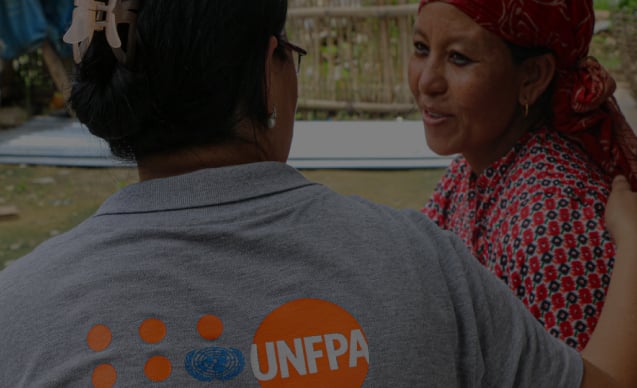UNFPA in Burundi
The United Nations Population Fund is in its 8th Cooperation Program with the Government of Burundi, running until 2023 (2019-2023).
Over the past 10 years, the Burundian population has experienced rapid overall growth of 30.1%, from 9.5 million in 2010 to 12.3 million in 2020. In 2020, 61% of this population was made up of young people under the age of 25, a figure that is expected to increase to 56% by 2030, according to demographic projections. Burundi has made encouraging progress in the area of family planning, with a prevalence rate of modern contraceptive methods of 23% according to the 2016/2017 EDSB III, compared to 18% in 2010.
Unmet need for family planning remains a concern, estimated at 30% in 2016, compared to 31% in 2010. Although the trend is downward (from 6.4 in 2010 to 5.5 in 2016 according to the EDSB II and III), the total fertility rate remains high, linked in particular to the low use of family planning services and early childbearing, which contributes to maternal mortality in Burundi, estimated at 334/100,000 live births in 2016. As for Burundi's 2010 DHS, the mortality ratio is 500 women per 100,000 live births, reflecting a downward trend, but efforts still need to be made, particularly in terms of the quality of care to curb in-hospital maternal mortality, which remains high.
The low level of knowledge among adolescents and young people about sexual and reproductive health, the limited access of young people and adolescent girls to reproductive health services, the lack of health facilities offering sexual and reproductive health services adapted to the needs of young people, and the lack of trained personnel to provide youth-friendly sexual and reproductive health services constitute significant development challenges. The 8th UNFPA-Government of Burundi Cooperation Programme (2019-23) has evolved since 2019 in an environment characterized by natural disasters, security issues in the subregion, the persistence of the COVID-19 pandemic, the war in Ukraine and its global impact on the availability of goods and services.
2023 is the final year of the 8th Programme, and in accordance with the guidelines for developing Country Programme Documents (CPDs), planning for the 9th Programme is scheduled to begin in 2022. The process of formulating the Country Programme Document, as recommended, should be led by the Government in collaboration with other partners. A participatory approach is essential to ensure national ownership of the programme and to empower stakeholders in their roles and responsibilities during all stages of planning, implementation, monitoring, and evaluation.




